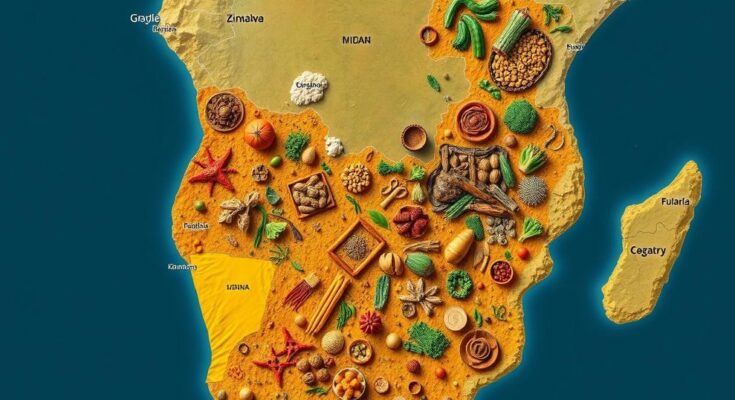A recent Stellenbosch University report indicates troubling trends in South Africa’s food security, with 25% of the poorest households reporting children going hungry in 2023. The child stunting rate is concerningly close to that of Zimbabwe, with 4.7 million people unable to meet basic caloric needs. Certain areas show improvement while others have seen marked declines. Recommendations for reforming VAT on nutritious foods highlight the need for enhanced affordability and nutrition to combat rising food insecurity compounded by economic pressures and the ongoing effects of the Covid-19 pandemic.
A recent report from Stellenbosch University reveals a concerning state of food security in South Africa, showing that one in four of the poorest households reported instances of children going hungry in 2023. South Africa’s food security has significantly declined since 2012, with child stunting rates now nearing those of Zimbabwe, a nation grappling with greater poverty. Currently, 25% of children are stunted in South Africa, only slightly better than Zimbabwe’s rate of 23.5%. Approximately 4.7 million individuals in South Africa do not meet their basic caloric needs. In rural areas, hunger is particularly prevalent in female-headed households, where 16.7% report children sleeping hungry, compared to 12.5% in male-headed households. The South African Food Security Index for 2024 indicates an alarming drop to a score of 45.3, down from 64.9 in 2019, suggesting that more South Africans faced severe food insecurity in the past year than in any other time from 2012 to 2023. A decline in food consumption quality has also been documented, with 11.8% of households consuming less diverse food choices due to economic constraints; while hunger rates had previously decreased significantly due to social grants, they have since risen again after the impact of Covid-19, compounded by issues like climate change, war, unemployment, and rising international food prices. Certain provinces, like Limpopo, showed unexpected improvement in food security rankings, while others like the Northern Cape saw a substantial decline. Notably, the Western Cape, Gauteng, and KwaZulu-Natal, despite their initial advantages, suffered sharp deteriorations leading into 2023. Prof. von Fintel, addressing recent findings, noted that economic hardships stemming from the Covid-19 pandemic continue to adversely affect food security, while also highlighting rising food inflation that outpaces general inflation. Furthermore, there is a pressing need for improvement in both affordability and nutritional quality of food, as cheaper alternatives often lack necessary nutrients. Prof. von Fintel emphasized that certain food groups, such as chicken liver and dark green leafy vegetables, should be made more accessible and affordable to support healthier diets in South Africa. Calls for reconsidering the value-added tax (VAT) on certain nutritious food items are growing; last month the South African Poultry Association (Sapa) proposed that specific chicken products be exempted from VAT to aid low-income families. Sapa’s CEO, Izaak Breitenbach, plans to apply for this exemption in November. The Competition Commission has raised concerns regarding food pricing strategies employed by retailers, indicating that while cost pressures are easing, savings are not being promptly transferred to consumers.
The article discusses South Africa’s ongoing food security challenges, particularly in light of recent reports comparing its status to that of Zimbabwe, a country characterized by extreme poverty and food shortages. It outlines the findings of Stellenbosch University’s report on food insecurity, highlighting how economic factors, such as the Covid-19 pandemic and rising food inflation, have aggravated the situation since 2012. The report reveals the alarming rates of child stunting and hunger, particularly in female-led households, and scrutinizes the country’s performance in the Food Security Index over the years. Additionally, suggestions are made regarding the need for more nutrition-focused policies and the potential impact of VAT reform to enhance food affordability and quality for the poorest households in South Africa.
In summary, the landscape of food security in South Africa presents a dire situation, with rising rates of hunger and child stunting that align closely with conditions in Zimbabwe. Despite previous progress, the deterioration in food security scores highlights urgent challenges that necessitate immediate and effective interventions. Addressing food affordability while ensuring nutritional quality is crucial, as is the potential reform of VAT policies to relieve financial pressure on low-income households. Without swift actions, the prospects for improved food security in the coming decade remain bleak.
Original Source: www.dailymaverick.co.za




